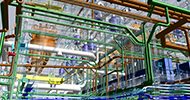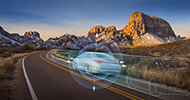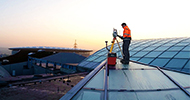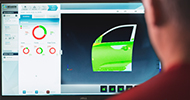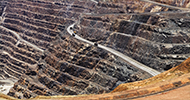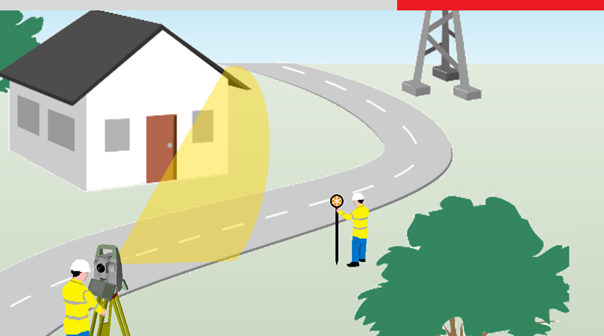This article is the last of a series focussing on robotic total stations
In the final Leica Captivate how-to video about the automation of Leica Geosystems robotic total stations, Paul Dainty, Leica Geosystems applications engineer, answers questions about PowerSearch and PowerSearch filter.
Paul, can you explain what PowerSearch is and how it works?
Sure! PowerSearch is a feature which enables a robotic total station or MultiStation to quickly locate a reflective target, such as a prism, in any direction. By sending out a vertical laser fan, the instrument rapidly turns through 360°, scanning for a target. When it finds and correctly verifies the target, the telescope is aimed precisely to the target, ready for measurements to be made.

How is PowerSearch beneficial for the user?
PowerSearch is particularly beneficial when the instrument is being used in one-person mode, where it is wanted to maintain lock to the prism as much as possible. When working in busy environments, it is inevitable that sometimes the view to the prism will be interrupted and therefore lock will be lost. PowerSearch quickly gets the instrument re-locked to the prism, therefore minimising downtime and increasing productivity. To find out more watch the following how-to video:
And what is meant with “PowerSearch filter” and how is it beneficial for the user?
PowerSearch filter was a new feature with Captivate, and makes PowerSearch even faster. It is often the case on site, that there are several other reflective targets or objects around which might be detected by a PowerSearch, before it does find the correct prism, therefore slowing down the search process. These other targets or objects could be other prisms such as the one on the backsight tripod, other unknown reflective targets or occasionally even reflective objects such as road signs. The instrument learns the location of these “unwanted” targets by doing an initial scan, which then adds them to the filter and excludes them from future searches. Any subsequent PowerSearch will find the correct target much quicker, increasing working efficiency even further. Learn more about it by watching the following video:
In the next blog post in this series, we will look at PowerSearch and PowerSearch filter.
- Leica Captivate how-to videos on robotic total stations (Part 1/3): Introduction to robotic total stations
- Leica Captivate how-to videos on robotic total stations (Part 2/3): Automatic target aiming and automatic target locking
- Leica Captivate how-to videos on robotic total stations (Part 3/3): PowerSearch and PowerSearch filter
Do you want to learn more details?
Read this White Paper giving insights into ATRplus, a technology by Leica Geosystems, which significantly increases automation performance of robotic total stations.
Paul Dainty, application engineer at Leica Geosystems






